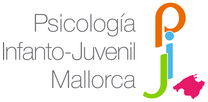
Who doesn’t like to enjoy having sex in one way or another? Ok well, some people can spend a prolonged period of time without having sex or carrying out any sexual activity, even a lifetime, so could we say that sex is necessary? What we can say (and with certainty) is that sex is one of the primary impulses that we have inherited as human beings. On the other hand, it is also true that some people cannot spend long periods of time without maintaining relationships and/or performing sexual practices so, how often could we say that it falls within the ‘usually necessary’, every day, never, once a week, once a month or even less?
To give an appropriate answer, the key is not in frequency but in the ability to control the sexual impulse and the emotion generated by sexual conduct. There’s a big difference between deciding to enjoy a full sexual life and feeling an imperative need to maintain relationships and/or realize sexual practices.
If sexual behaviours carried out do not seem to be enough (although these have been practiced a lot) or they are satisfactory for a very short time only, it’s when we can identify the existence of dependence or addiction. On the other hand, it is important to know differentiate between sex addiction and a general anxiety problem because this can be confused with an addiction to be reflected in a sex-related compulsive behaviour.
Sex as an addiction
Hypersexuality (also known as sex addiction) is defined by the lack of momentum control over sexual behaviour accompanied by general malaise and/or deterioration of the quality of life of the person who suffers it. This addiction not only affects sexual and/or sentimental area of the person but it also affects him/her at the personal, social, employment, family and other vital areas of the individual.
If there is vulnerability to addictive impulses, sex addiction can develop in the same way as addiction of substances or other behaviour. Sex behaviour in itself is not harmful, it is to lose control of such behaviour so conduct must not be renounced but we must learn to control it.
Sex addiction is classified into non-substances addictions such as gambling addiction or addiction to Internet. Is the obsessive behaviour that is in need of compulsion which is uncontrollable by the person so this behaviour is not guided by love, passion or desire, but by an irretrievable need to relieve a malaise by obtaining pleasure through sex.
Hypersexuality is an addiction which affects 5% of the world’s population according to the World Health Organization.
Predisposing hypersexuality factors
Two types of factors that can predispose to develop hypersexuality can be identified: biological and environmental. As far as the biological factor is concerned, there are people who present in their personality predispositions that make them more vulnerable to this addiction. Personality traits have been identified that are usually present in people with hypersexuality, such as impulsiveness and the search for permanent sensations and satisfaction among others. In addition within the biological factor, there is a neuroendocrine hypothesis that the main neurotransmitter involved in sex addiction is dopamine: a substance that exists in our brain and is directly related to pleasure. Dopamine secretion occurs in pleasant situations which is why we seek to conduct these behaviours that are pleasing us but varies between people, for some people can be food, for other people can be sex, to practice sport or the consumption of some substances, all this things generates dopamine in certain areas of the brain and the result of doing the conduct is feeling pleasure as a reward for this particular behaviour, although it is important to bear in mind that there are people more vulnerable than others to addiction because it depends on a set of factors between which biological, environmental and personal are found.
Looking to the environmental factors, people who have lived in contexts of unstructured families, mate failures or sexual trauma they have a higher predisposition among the most prominent motifs. A relationship between hypersexuality and sexual abuse has also been observed in childhood or adolescence.
On the other hand, as maintainer factors we are faced with affective loneliness, general emotional malaise or easy and quick access to pornographic material.
How can we find out if we are addicted to sex?
As with all addictions in hypersexuality there are common patterns of behaviour and these are usually:
– No self-control
– Impulsive behaivour
– Progressive increase in the need for sexual behaviours
– Search for new stimuli and sensations
– Social isolation
– Coexistence with other mood disorders such as anxiety or depression
– Poly addiction (most often drug abuse)
– Possible sexual abuse in childhood or adolescence
The possible effects of hypersexuality can be reflected in several areas of the life of the person who is suffering from it, thereby neglecting their work, no longer remaining with their friendships and socially isolating themselves, disassociating themselves from the family and having problems with the relationship between partners, among others.
In addition, several areas of the person’s life can being affected, as well as his/her integrity and/or physical health, since there are risks such as contracting a sexually transmitted disease or infection, an unwanted pregnancy or even of some sexual abuse by another person. To avoid such risks (and sometimes for other reasons such as social anxiety) there are people who opt for an option without physical contact, instead of engaging in sexual conduct with others in person they do through the Internet, an option that is equally harmful in the case of sex addiction.
As in all addictions if the person does not consume, either a substance or not, it will experience a series of abstinence symptoms among which they are:
– Anxiety
– Inquietude
– Insomnia
– Excessive sexual appetite
– Irritablility
– Guiltilness
– Changing moods
How can we solve it?
Hypersexuality is a psychological disorder and as such it has treatment aimed at improving and achieving a healthy life in all areas of the person. Given the diversity of personalities treatment must always be personal.
– Psychological therapy is fundamental and the best results obtained in the treatment of hypersexuality are Cognitive Behavioural Therapy (CBT), Acceptation and Compromise Therapy (ACT), pair therapy to reconstruct the relationship, among others.
– The couple (in the case of having it) is an important support in dealing with sex addiction as she/he is an excellent contributor to successful treatment involving her/his in dealing with it.
– As for pharmacological treatments the most effective of these are those combined with psychological therapies.
Not all people are aware that they are addicted to sex and in order to be able to help them by starting a psychological treatment the surrounding people, including the partner, are of great help to enable the person with hypersexuality to take the first step towards a general improvement in all areas of their life by attending to psychotherapy. If you have this problem or feel identified with something related to this article don’t hesitate to contact us so we can help you.
Sarah Martínez López
Psychologist Col. N° B-03249








